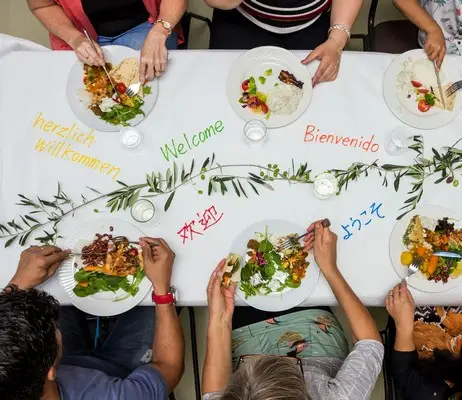Table of Contents
- The Nuclear Family and Its Global Variations
- The Extended Family: Cultural Roots and Modern Trends
- Reconstituted Families: Blending Family Units Across Cultures
- Lone Parent Families: Economic and Social Challenges
- Same-Sex Families: Legal Recognition and Social Acceptance
- The Role of Social Policy in Shaping Family Forms
- Conclusion
Family structures are a fundamental aspect of sociology, shaping individuals’ lives and society as a whole. For students studying A-level sociology, understanding how family forms vary across different cultures and societies is crucial for a nuanced grasp of social structures and relationships. Family forms are not universal; they are deeply influenced by cultural norms, economic conditions, and social policies. While the traditional nuclear family has been a dominant concept in many Western societies, other family structures, such as extended, reconstituted, lone-parent, and single-sex families, play significant roles globally. This article will explore various family forms from different countries and regions, examining how these structures reflect and respond to broader societal factors.
The Nuclear Family and Its Global Variations
The nuclear family, consisting of two parents and their children, is often considered the ‘norm’ in Western societies like the UK, especially in sociological discussions about family structures. In many industrialized nations, this family form has been regarded as the ideal, particularly in the mid-20th century. However, the prevalence of the nuclear family varies globally, and its cultural significance differs from country to country. For instance, in the United States and much of Western Europe, the nuclear family remains a prevalent ideal, linked to values such as independence and economic self-sufficiency.
In contrast, in many parts of Africa, Asia, and Latin America, the nuclear family exists but often coexists with extended family structures, which are seen as equally important, if not more so. For example, in rural India, while nuclear families are present, it is common to find extended family arrangements where grandparents, uncles, aunts, and cousins live in the same household or nearby, playing significant roles in child-rearing and household responsibilities. This reflects the cultural emphasis on collectivism and family loyalty, which stands in stark contrast to the individualism that often characterises Western family life.
In Scandinavian countries like Sweden, the concept of the nuclear family has been redefined in light of social policies promoting gender equality and work-life balance. The state’s support for parental leave and childcare has encouraged a more egalitarian distribution of family responsibilities, resulting in family forms that may not adhere strictly to traditional roles. This shows how government policies can reshape what is understood as a ‘typical’ family, moving away from rigid gender roles toward more flexible, inclusive family structures.
The Extended Family: Cultural Roots and Modern Trends
Extended families, which include relatives beyond the immediate nuclear family, such as grandparents, aunts, uncles, and cousins, are a common family form in many parts of the world. Historically, extended families have been vital in agricultural societies, where large family units provide labour and support across generations. Today, extended families are still common in rural areas of Africa, Asia, and Latin America, although they are becoming less prevalent in urban settings due to modernisation and urbanisation.
In African societies, extended families are often considered the backbone of social organisation. The extended family network is not only a social unit but also an economic one, where members pool resources and provide mutual support in times of need. This form of family structure reflects the communal values that are deeply embedded in many African cultures. In Nigeria, for example, it is not uncommon for extended family members to take on parenting roles, with grandparents or aunts and uncles raising children when parents migrate for work. This system underscores the cultural importance of familial duty and collective responsibility.
In contrast, in Western societies, the extended family plays a much smaller role, partly due to economic and social changes that promote individualism and mobility. However, extended family structures are still found among immigrant communities in countries like the UK, where cultural ties to the home country remain strong. For instance, many South Asian and Middle Eastern families in Britain maintain close connections with their extended family members, both locally and transnationally. This reflects the persistence of cultural traditions and the importance of family networks in providing emotional and financial support, particularly among immigrant families.
Reconstituted Families: Blending Family Units Across Cultures
Reconstituted families, also known as blended families, are formed when one or both partners in a marriage or partnership bring children from previous relationships into the household. This family form has become more common in many Western societies due to higher rates of divorce and remarriage. In the UK, reconstituted families account for a significant proportion of family units, reflecting broader societal changes such as the increasing acceptability of divorce and the evolution of family law.
In the United States, reconstituted families are equally prevalent, often referred to as ‘stepfamilies’. These families face unique challenges, such as negotiating relationships between step-siblings and step-parents, as well as navigating loyalties between biological parents and new partners. The rise of reconstituted families highlights how family structures are continually adapting to social changes, particularly the growing recognition of diverse family forms.
In contrast, in some parts of the world, reconstituted families are less common, partly due to cultural or religious restrictions on divorce and remarriage. In countries with strong religious traditions, such as many parts of the Middle East or South Asia, divorce is often stigmatized, and remarriage is less frequent. As a result, reconstituted families are rare, and the nuclear or extended family model tends to dominate. These differences show how family forms are shaped by local cultural and religious values, as well as by legal frameworks governing marriage and family life.
Lone Parent Families: Economic and Social Challenges
Get the full article AD FREE. Join now for full access to all premium articles.
View Plans & Subscribe Already a member? Log in.






